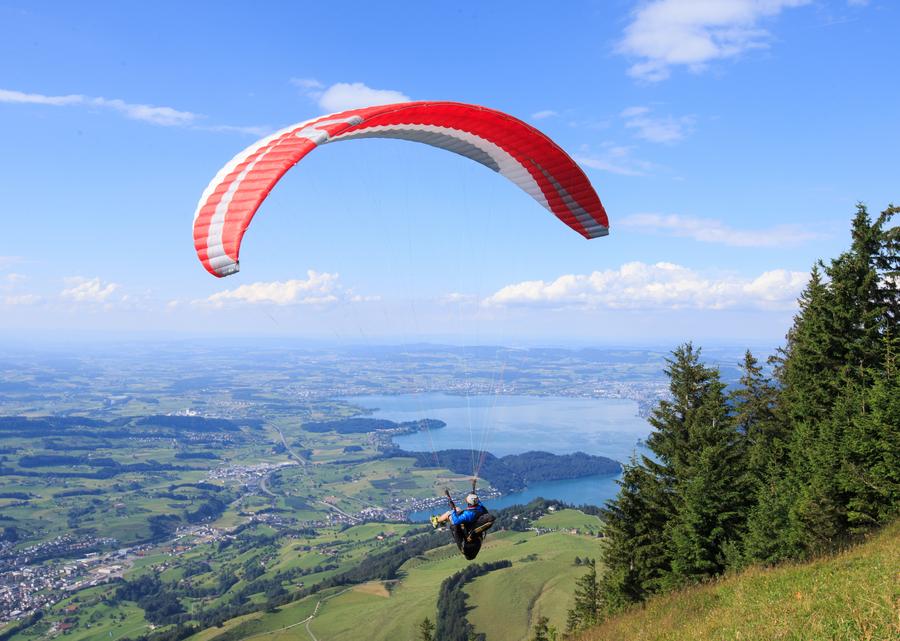A paragliding fan flies over Rigi mountain near Luzern, Switzerland, Aug. 1, 2016, Switzerland's National Day. Rigi, known as "the Queen of the Mountains", is one of the most popular hotspots for paragliding in central Switzerland. (Xinhua/Xu Jinquan)
The sister mountain partnership forged between Mount Rigi in Switzerland and Mount Emei in China over a decade ago has built a bridge of tourism and cultural exchange between the two countries, Frederic Fussenich, CEO of Mount Rigi Railways, said in a recent interview with Xinhua.
by Xinhua writer Shi Song
GENEVA, Nov. 11 (Xinhua) -- The sister mountain partnership forged between Mount Rigi in Switzerland and Mount Emei in China over a decade ago has built a bridge of tourism and cultural exchange between the two countries, Frederic Fussenich, CEO of Mount Rigi Railways, said in a recent interview with Xinhua.
Located in central Switzerland, Mount Rigi stands at the edge of the Swiss Alps, overlooking Lake Lucerne. Known as the "Queen of the Mountains," it has long been a popular tourist attraction, especially since the launch of the mountain railway in 1871.
In March 2009, Mount Rigi Railways and the Mount Emei Scenic Area Management Committee signed an agreement to collaborate on joint promotions and market sharing. The two sides also agreed to exchange stones representing each mountain's identity as a celebration of the partnership.
This "bond of mountains and stones" allows visitors to experience a piece of each mountain's character, promoting each other's reputation globally and symbolizing the friendship between the two peoples, Fussenich said.
He also noted that as the partnership develops, more tourists from both nations have exchanged visits, strengthening cultural understanding.
Since China resumed outbound tourism in 2023, Mount Rigi has welcomed an inrush of Chinese visitors, Fussenich said, adding that many Chinese tourists show increasing interest in hiking, wellness and local experiences -- all of which Mount Rigi offers in abundance.
Mount Rigi has been actively cooperating with major Chinese travel agencies and influencers to promote itself on social media and better serve Chinese visitors, Fussenich noted.
Additionally, the mountain now provides Chinese-language informational materials, signage and menus tailored to Chinese preferences, and a newly completed round walk will soon offer an audio guide in Chinese.
China's recent decision to grant visa-free access to visitors from several countries, including Switzerland, "has greatly simplified travel," said Fussenich. This policy not only makes travel to China more accessible and convenient for international visitors but also represents a positive step toward enhancing tourism cooperation between China and other nations, he added.
Looking forward, Fussenich expressed his enthusiasm for the future. "I can't wait to welcome more Chinese tourists to our Queen of the Mountains soon!"





 A single purchase
A single purchase









